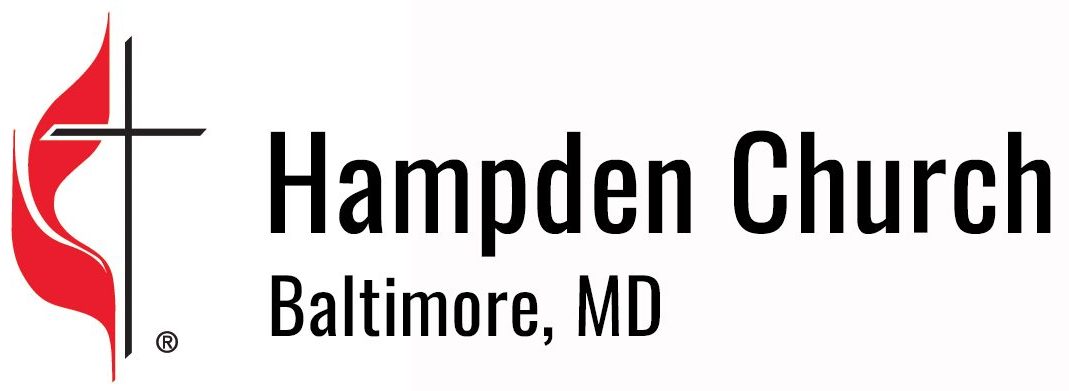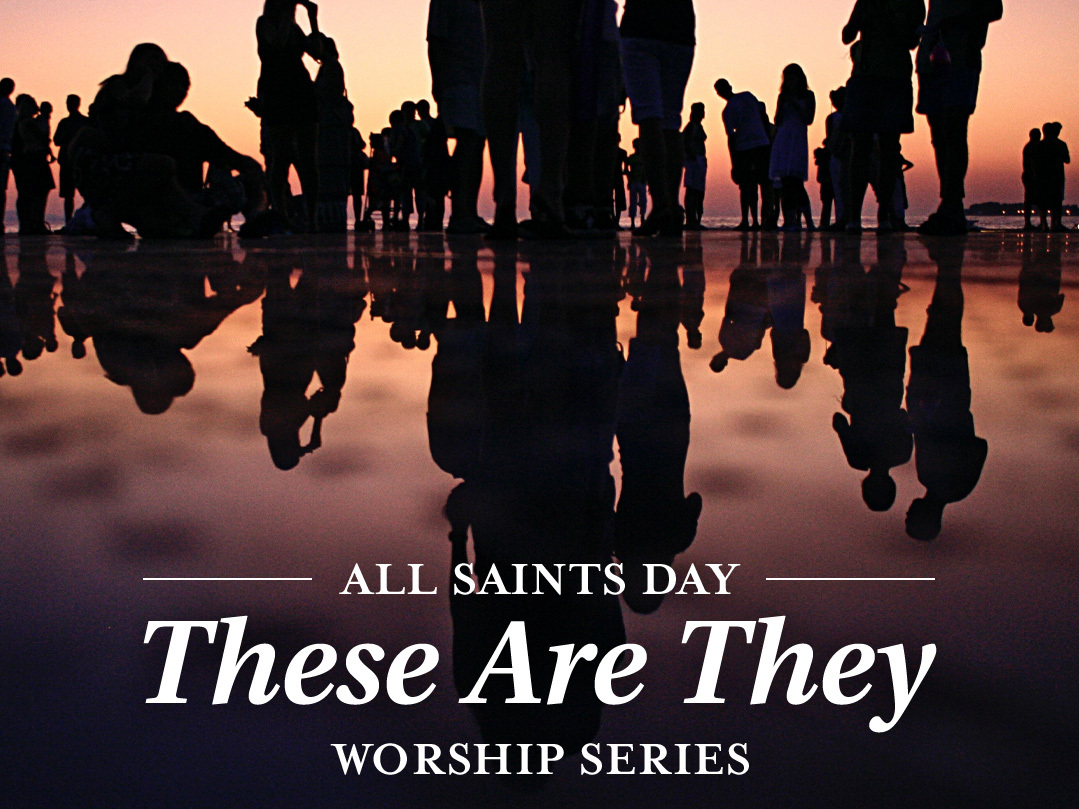Nov. 1st, 2020 — homily on Revelation 7:9-17 for All Saints/All Souls Sunday by Pastor Galen Zook
I’ve been contemplating death and life a lot this week.
Last Saturday, I led a Celebration of Life service for a young mother who passed away suddenly and unexpectedly. Her teenage son was a close friend of my daughter.
A few days later, I watched the livestream of the funeral service for my cousin, who passed away due in part to COVID.
Many of us experienced the loss of loved ones this past year, but we were not able to gather together with others to celebrate their life or to mourn their passing due to social distancing. In situations where we or others did choose to come together to encourage and support each other in our grief, we found that there was an added level of distress and concern in our preparations.
Last week as we prepared for the socially distanced Celebration of Life service that was held here in our sanctuary, the grieving husband said to me, “We don’t want this to turn into a superspreader event. She would not have wanted that.” We of course took every necessary precaution to ensure the safety of those who attended, sanitizing the sanctuary afterwards as well to prepare for our worship here the next morning.
A few days later, however, as I watched the livestream of my cousin’s funeral at home on my computer, I found that I was so distracted and concerned for the safety of those who were attending the funeral in person, that it was difficult for me to get very much out of the service. It wasn’t until after the memorial service when I was informed of the extensive preparations that had gone into ensuring the safety of those in attendance that my mind was put somewhat more at ease.
All of this is an indication of the extremely difficult and complex time that we are living in the midst of. Dealing with grief and mourning the loss of loved ones is always hard, but our pain and grief, fear and anxiety is compounded during this season, due to the pandemic that we’re experiencing.
Worshipping Together Around God’s Throne
Of course, all of this makes us look forward that much more to the day when we will be with Jesus in heaven, worshipping together around God’s throne. That time when there will be no more sickness or death, loss or heartache. When we won’t have to worry about the coronavirus or another other sort of plague or pandemic.
In Revelation chapter 7, John the Revelator had a vision of a multitude of people, so great that no one could count them, consisting of people from every nation, tribe, people group, and language, standing together before God’s throne, wearing white robes, and holding palm branches in their hands.
In a loud voice they proclaimed, “Salvation belongs to our God who is seated on the throne, and to the Lamb” (Rev. 7:10).
We learn that this multitude of people were those who had been through a “great ordeal” (Rev. 7:14 NRSV) — otherwise called “the great tribulation” (Rev. 7:14 MSG), but that they had “washed their robes and made them white in the blood of the Lamb” (Rev. 7:14b).
In other words, these are followers of Christ who had given their lives in the service of Jesus. We might call them “martyrs,” people who died for their faith in Christ. They had endured persecution, imprisonment, perhaps even torture, sickeness, disease, and death, all for the sake of proclaiming the Good News of Jesus Christ.
But now they are in the presence of God. The angels in John’s vision told him that “They will hunger no more, and thirst no more; the sun will not strike them, nor any scorching heat; for the Lamb at the center of the throne will be their shepherd, and he will guide them to springs of the water of life, and God will wipe away every tear from their eyes” (Rev. 7:16-17).
For people who had endured persecution and starvation, torture and death, the idea of never being hungry or thirst again, never again experiencing scorching heat, the image of being guided by the Good Shepherd to springs of living water and having God’s presence so close to you that God can literally wipe away every tear from your eyes, sounds pretty good.
John the Revelator was of course someone who had experienced persecution himself. He had this vision while on the Isle of Patmos, exiled from his friends and family members. He was experiencing extreme isolation and social distancing. No doubt he had lost many friends and loved ones due to persecution, and had been prevented from gathering with others to mourn and grieve their passing.
And so to John, and to us today, this image of one day gathering together in worship around the throne of God, and having God wipe away every tear from our eyes provides us with much comfort and solace in the midst of our grief and anxiety.
Giving our Lives
But John’s vision should not only give us hope and comfort for the future. It should also transform the way we live our lives here and now.
You see, the martyrs did not sacrifice their lives in order to try to earn their way into heaven, or so they could go to heaven to be with Jesus. But rather they were people who were so passionately in love with Jesus, that they sought to follow and live for him in every single aspect of their lives. They gave their lives sacrificially to others, just as Jesus did, not only in their dying, but even moreso in their living.
They gave of their time and energy and resources to proclaim the Good News of Jesus Christ through word and deed. These martyrs had experienced the love, and grace, and forgiveness that Jesus offers to all, and they gave their all to proclaim that love to all those around them and all those who would come after them.
All Saints/All Souls Day
Today is All Saints Sunday and tomorrow is All Souls day, when we remember all those who have gone on before us. In particular we think of those like the martyrs here in Revelation chapter 7 who sought to live as faithful followers of Jesus Christ.
Saints and martyrs were not perfect people. In fact, in the Bible refers to all followers of Jesus are referred to as “saints.” But we generally use this word to describe people that we look up to and admire, people who sought to live their lives in service of Jesus Christ.
Role Models
Whether we like it or not, there are people around us who are looking up to us and watching us today. They’re watching the way we live our lives, and they might even be seeking to follow our example. The number of people who attend church on a regular basis has dropped significantly over the years, and few people seem to read their Bibles. That means that for many people in our lives, we may be some of the few active church goers that many people know.
While we might hesitate to think of ourselves as “saints,” this does mean that we need to think carefully about what we say and do, and how we live our lives. And as such, I believe that there is much that we can learn from these saints and martyrs here in Revelation 7.
Confession
First, we must acknowledge that our hope is not in our own goodness or righteousness, but rather because of the shed blood of the Lamb — Jesus Christ, as we see in Rev. 7:14. This is why later this morning before we partake in communion, we will confess our sins and wrongdoing, and be reminded again of the grace and forgiveness that Jesus offers. As we allow God’s love to wash over us, we too can extend God’s love toward others.
Confessing our sins to God and to one another and acknowledging our imperfections goes a long way in pointing others towards Jesus. As believers, when we try to hide and cover up our mistakes, it so often turns others away, but when we admit that we’re not perfect, it helps them to understand more fully the love and grace that is available to them as well.
Great (and Diverse) Multitude
From this multitude of martyrs in Revelation 7, we learn too that the Church — the Body of Christ — is made up of believers all throughout the world, and all throughout history. Many of them look different than us, speak different languages from us, and have different ways of living out their faith. This means that we should be careful not to speak ill of those who may worship differently than us, or believe and act differently than us, since the Body of Christ is so much larger and more diverse than any of us can imagine.
Worship
And then finally, there’s worship. The saints and martyrs in Revelation 7 would remind us that worship is not just what we do when we come together on Sunday mornings. Worship is not just singing songs, or praying prayers. Worship is giving our lives in sacrificial service, submitting ourselves to the lordship of Jesus Christ. It’s growing passionately in love with Jesus and allowing that love to permeate every fiber of our being.
We worship God when we put God first in our homes and marriages and families, in our work and in our school. We worship God when we allow God’s Word to illuminate our lives, to transform us and make us over anew. We worship God in response to what God has done for us. We worship through laying all that we have and all that we are on the altar, and saying “God, use me as you will. Send me to do your will.” We worship God as we live our lives in response to the love that God demonstrated to us through sending Jesus to die on the cross for us. We worship as we allow our hearts to be broken for the hurting, the needy, and the lost in this world, and as we open ourselves in obedience to God’s will for our lives.
May we find hope and comfort that one day we too will gather together with that great multitude around God’s throne, worshipping God for all of eternity. And may we too live our lives in constant devotion to Christ, passionately giving ourselves in love for God and others in response to overwhelming grace and abundant love that God has poured out for us.

